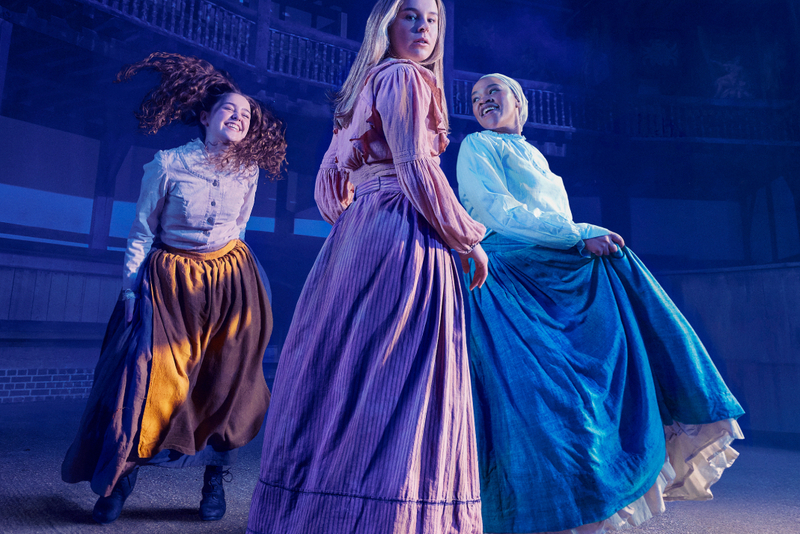Olivia Olsen is such a person, and it is clear that she holds a deep affection and respect for Russian poet Anna Akhmatova.
Olsen has contrived this three-hander play, which touches on the beautiful brevity of Akhmatova’s phrasing and pays homage to her ability to keep on the right side of Stalin’s paranoiac fantasies, whilst she compromises her ideals by writing propaganda speeches for him in a bid to keep her imprisoned son alive.
Avoiding the gulags by parrying the tyrant’s explosive episodes, becomes a recurring theme throughout the play, but the whole comes perilously close to a talking-shop marathon - especially in the first half where several Press Night audience members were visibly nodding-off. Considerable liberties have also been taken with historical timelines which doesn’t seem to serve any obvious purpose.
Thus perhaps, the strength of STRAY DOGS is also its Achilles heal, for Olsen is so determined that we fully understand the extraordinary stoicism of the woman she admires, that she plays the role herself and entirely forgets that a piece of performance theatre still needs to fundamentally entertain, else it becomes a didactic and tedious lecture. Her performance is aloof and at odds with her fellow players as she waifishly wafts from scene to scene, unloading the linguistic meanderings of an artistic soul.
There are beautiful phrases, emotional outbursts and sensitive unravellings, but the piece - which runs for perhaps 40 minutes longer that it should - is ponderous and unintentionally tragic in places.
Ian Redford gets the most out of his part by adding both a sinister and comical edge to Stalin, whilst Ben Porter’s earnest portrayal of Anna’s one-time lover the philosopher Isaiah Berlin is woefully under-utilised in what amounts to a filler role.
Structurally, the play would benefit from a paring down of the idealistic and romanticised flabbiness. There were moments this reviewer wondered how much better the piece would work as a black comedy, played entirely within the dystopian confines of a Politburo Office, but perhaps Ms Olsen holds her Russian heroine in too much reverence, to entertain such a notion?

 Behind the rediscovery of any largely forgotten creative artist, will be a tenacious devotee whose mission in life is to reawaken interest in their idol’s genius and rekindle their legend.
Behind the rediscovery of any largely forgotten creative artist, will be a tenacious devotee whose mission in life is to reawaken interest in their idol’s genius and rekindle their legend.


